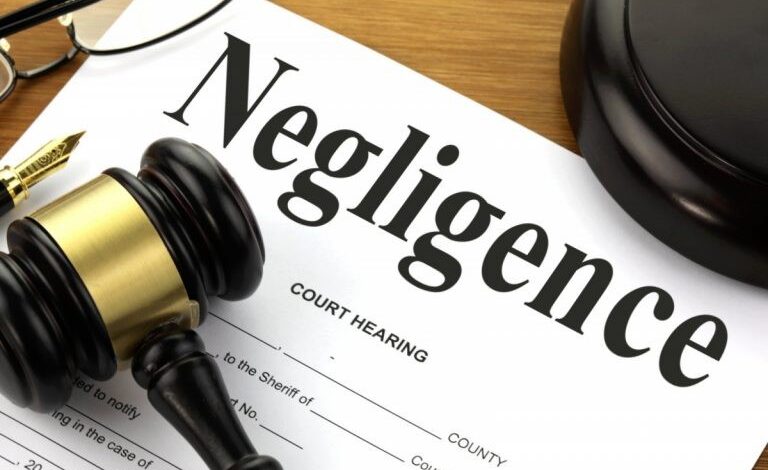What Constitutes Gross Negligence in Personal Injury Law?

When someone gets hurt because of another person’s careless actions, personal injury law helps them seek justice. But not all careless actions are the same. Some mistakes happen because of minor negligence, while others are so reckless that they show a complete disregard for safety. This is called gross negligence.
In this blog, we will explain what gross negligence is, how it differs from ordinary negligence, and how it affects personal injury cases. If you or a loved one has suffered due to gross negligence, personal injury attorneys from Greg Jones Law, P.A. can help you understand your rights and seek the compensation you deserve.
Understanding Gross Negligence
Negligence, in legal terms, means failing to take reasonable care, which results in harm to someone else. Gross negligence, however, is a much more serious form of negligence. It happens when someone’s actions are extremely careless and dangerous, going beyond simple mistakes. In such cases, the responsible person knows their actions could cause harm but still acts recklessly.
For example, if a driver is texting while driving and causes an accident, that might be considered ordinary negligence. However, if the driver is drunk, speeding, and running red lights, it could be gross negligence because the actions show a total disregard for safety.
Key Differences Between Ordinary and Gross Negligence
Ordinary negligence occurs when a person makes a careless mistake without meaning to cause harm. It may involve minor errors like forgetting to mop up a spill in a store, which leads to someone slipping.
On the other hand, gross negligence involves reckless behavior where the person ignores obvious risks. A clear example is a doctor performing surgery while intoxicated. In this case, the doctor is not just making a mistake but completely ignoring the safety of the patient.
Examples of Gross Negligence in Personal Injury Cases
Here are some real-life situations where gross negligence may apply:
- Medical Malpractice – A surgeon performs an operation on the wrong body part or leaves a surgical tool inside a patient.
- Car Accidents – A driver is racing on a busy street and crashes into another vehicle, causing serious injuries.
- Nursing Home Neglect – A caregiver completely ignores an elderly patient’s medical needs, leading to serious health problems.
- Defective Products – A company knowingly sells a product with dangerous defects that can cause harm.
- Workplace Safety Violations – An employer forces workers to do dangerous tasks without safety equipment, leading to injuries.
How Gross Negligence Affects a Personal Injury Case
When gross negligence is proven in a personal injury case, it can lead to higher compensation for the injured person. Courts take these cases very seriously because the actions are not just careless but dangerously irresponsible.
1. Larger Settlements
Victims of gross negligence may receive higher compensation, especially for pain and suffering. Since the harm caused is often severe, courts may order the responsible party to pay more.
2. Punitive Damages
In some cases, courts may award punitive damages. These are extra penalties meant to punish the responsible person and prevent similar reckless behavior in the future.
3. Stronger Legal Claims
A case involving gross negligence is often easier to win because the wrongdoing is more obvious. The court is more likely to rule in favor of the injured person when clear evidence of extreme recklessness is presented.
Proving Gross Negligence in Court
To prove gross negligence in a personal injury case, the injured party (plaintiff) must show:
- Duty of Care – The responsible person had a duty to act safely. For example, a driver must follow traffic laws, and a doctor must provide proper medical treatment.
- Violation of Duty – The person acted in a reckless or extremely careless way, such as a driver speeding through a school zone.
- Causation – The reckless action directly caused harm. For instance, if a drunk driver crashes into another car, their recklessness caused the accident.
- Damages – The injured person suffered losses, such as medical bills, lost wages, or emotional distress.
If all these elements are proven, the court may rule in favor of the injured person and order the responsible party to pay compensation.
Conclusion
Gross negligence is more than just carelessness; it is extreme recklessness that puts others in danger. It is taken very seriously in personal injury law, and victims can receive higher compensation, including punitive damages. If you or someone you know has been injured due to gross negligence, it is important to consult a personal injury lawyer to understand your legal rights.


